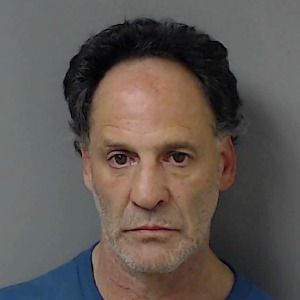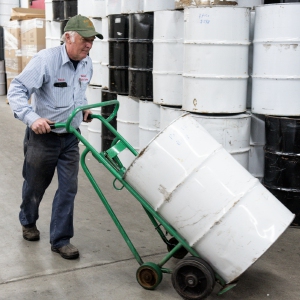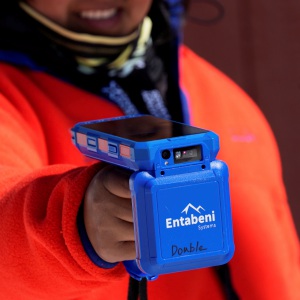Hundreds of Vermont schools and child care facilities do not meet herd immunity threshold for measles
| Published: 04-04-2025 11:00 AM |
The United States is in the midst of a surge in measles cases driven by unvaccinated children.
The U.S. Centers for Disease Control and Prevention has reported 483 measles cases so far in 2025. If the current pace of spread were to continue, it would make this year the worst for measles in the 21st century.
About 97% of cases have been in unvaccinated people or people with unknown vaccine status, the CDC reported. Three-quarters of cases have been in people under the age of 20. Seventy people have been hospitalized, and one school-aged child has died in Texas.
Cases have been highest in Texas and New Mexico, according to the CDC. Vermont has been mostly spared thus far, with only one travel-related case reported by the state Department of Health.
But health officials here are worried about one key statistic: The state’s measles vaccination rate for incoming kindergarteners has been below 95%, the critical “herd immunity” threshold that can prevent individual cases from becoming outbreaks.
For the 2023-24 school year, the most recent year available, 93% of kindergarteners in public or private schools were up-to-date on their MMR vaccines, which provide protection against measles, mumps and rubella, according to health department data. Adults are also recommended to receive the MMR vaccine if they do not have evidence of vaccination or immunity.
Even fewer, 91%, were fully immunized with all the required childhood vaccinations, which also include protection against diphtheria, tetanus, pertussis, chickenpox, polio and hepatitis B.
“If we have 95% of people vaccinated, it would stop the spread,” said MeridethPlumpton, the department’s immunization program director. “Right now in Vermont, we’re below that.”
Article continues after...
Yesterday's Most Read Articles
 Upper Valley residents turn out in droves for protests against federal policies and cuts
Upper Valley residents turn out in droves for protests against federal policies and cuts
 Kenyon: DH CEO asserts decision to close infertility program was ‘thoughtfully evaluated’
Kenyon: DH CEO asserts decision to close infertility program was ‘thoughtfully evaluated’
 A Look Back: Catamount Brewing remembered as ‘a pioneering kind of venture’
A Look Back: Catamount Brewing remembered as ‘a pioneering kind of venture’
 High school soccer: As Grabill heads to Sunapee, Richardson takes over Hanover vacancy
High school soccer: As Grabill heads to Sunapee, Richardson takes over Hanover vacancy
 NH lawmakers want to study the possibility of leaving New England’s electricity system
NH lawmakers want to study the possibility of leaving New England’s electricity system
 ‘The revenue just isn’t there’: House Finance Committee slashes $271M in jobs, services from Ayotte’s budget proposal
‘The revenue just isn’t there’: House Finance Committee slashes $271M in jobs, services from Ayotte’s budget proposal
The measles vaccination rate for kindergarteners in Vermont is similar to the nationwide one, according to a research paper from the CDC. But the state has the second-lowest measles rate in New England, above only New Hampshire. It’s also lower than neighboring New York state.
While 93% may sound close to 95%, that gap makes a real difference when it comes to herd immunity, Plumpton said. The 95% threshold is effectively a tipping point where vaccinated people act as a buffer, keeping the 5% of the community from coming into contact with each other.
“It just means that if we have a case, the likelihood that it’s going to spread is pretty high, especially if the child goes to school or child care during their infectious period,” she said.
Among all school-aged children, the rate of vaccination was higher, about 96% for the MMR vaccine. But facility-level data, which VTDigger obtained from the health department, shows that the statewide vaccination average was only part of the picture — in reality, many schools are far below the average.
About 26% of K-12 schools and 23% of child care facilities did not meet the 95% vaccination threshold for measles, the department data showed. In three counties — Lamoille, Orleans and Washington — the percent of facilities that do not meet herd immunity rose above 33%.
Vermont requires children entering child care facilities or K-12 schools to receive five vaccines that protect against nine potential childhood illnesses. Students at residential schools, also known as boarding schools, and incoming residential university students are also required to receive the vaccine against meningitis.
But children can be exempted from those requirements for three reasons: provisional admittance for children with upcoming vaccination appointments, a medical exemption approved by a health provider or a religious exemption where parents attest to “holding religious beliefs opposed to immunization.”
For the 2023-24 school year, only 0.2% of children were medically exempted, 3% were provisionally admitted and 3% were exempted for religious reasons, according to the health department.
Plumpton said the lowest vaccination rates tend to be found in the state’s most rural areas. “It could be a combination of lack of access and attitudes towards vaccines,” she said.
Independent schools, which includes private and religious schools, also tend to have lower vaccination rates than public schools, according to the department data.
Vaccination hesitancy has been bolstered in recent years by anti-vaccine sentiment connected to the Covid-19 vaccine, Plumpton said. The Trump administration has also placed the longtime anti-vaccine activist Robert F. Kennedy in charge of the U.S. Department of Health and Human Services, one of the most powerful public health roles in the nation.
Plumpton emphasized that most Vermont families still choose to have their children vaccinated. But it’s natural for parents to have questions about the vaccines they’re giving their children, she said.
“As a parent, I want to make the best decision that I can for my child, and I can only make that decision based on the information that I have,” she said. “And we’re in an age where there’s information everywhere, so it’s really hard to know what the correct information is or where to go to get good, solid, sound, scientific information.”
She encouraged parents to check out reputable websites like Vaccinate Your Family and VaccineInformation.org, which both have thorough FAQs about the safety and efficacy of each vaccine.
She also encouraged them to discuss their child’s vaccine schedule with their primary care provider or pediatrician. Vermont provides recommended vaccine doses for children and adults at no cost to health care providers.
But her message to Vermont parents was clear: Measles is a highly contagious virus that can lead to severe illness and death, and “vaccines are the best defense against the illnesses that you’re getting vaccinated against.”
“They’re not going to prevent 100% of the diseases,” she said. “That’s not the way vaccines work. But they’re really highly effective at preventing hospitalization and really serious illness. And there’s a reason that we have these vaccines.”
You can use the tool below to browse school and child care vaccination rates, or check out the Department of Health’s vaccination dashboard for a fuller picture by year and county.






 Hartford man dies while incarcerated
Hartford man dies while incarcerated  Hartford hires its first housing and development specialist
Hartford hires its first housing and development specialist So far exempt from tariffs, maple industry still feels their effects
So far exempt from tariffs, maple industry still feels their effects A New Hampshire ski resort bets on tech to compete with industry giants
A New Hampshire ski resort bets on tech to compete with industry giants
